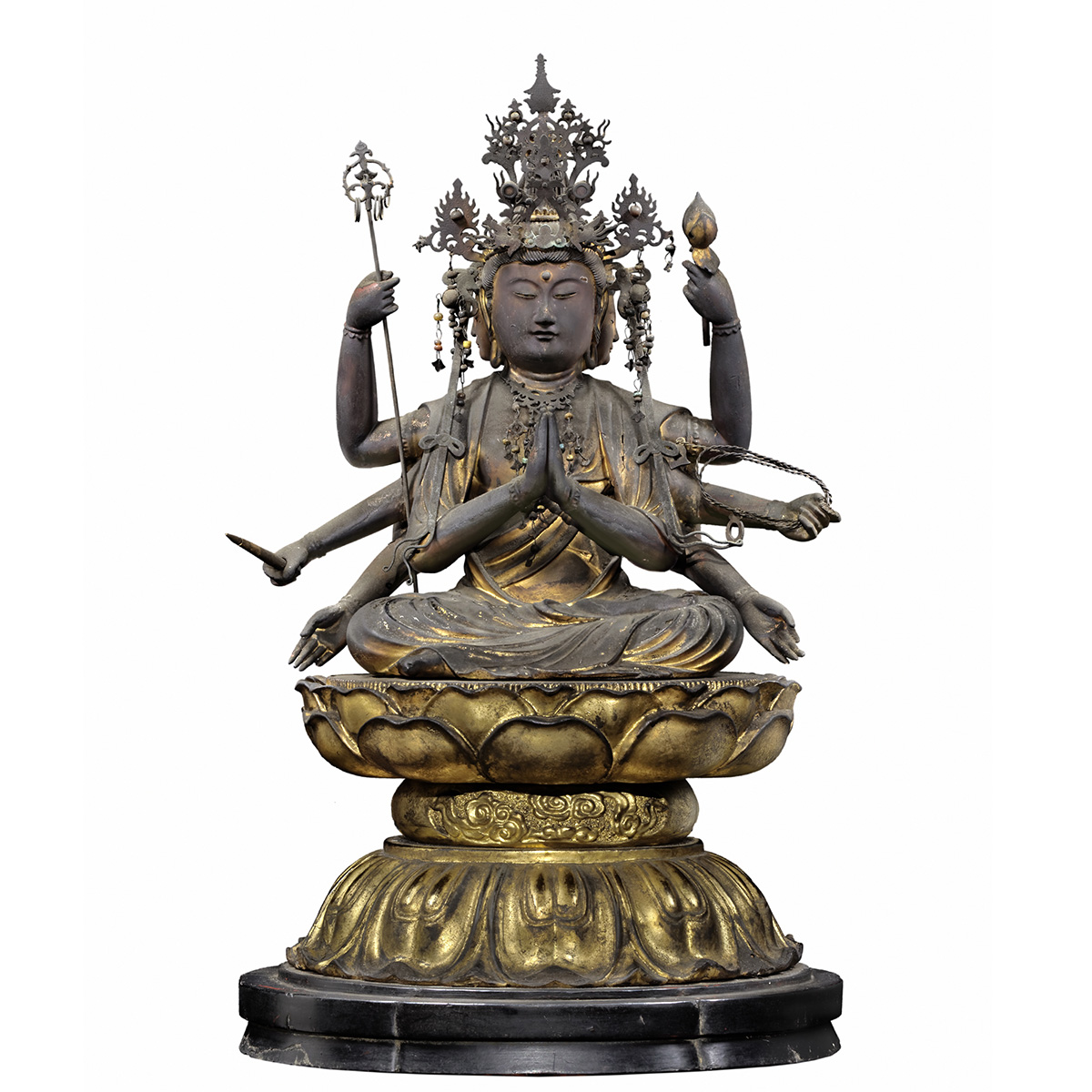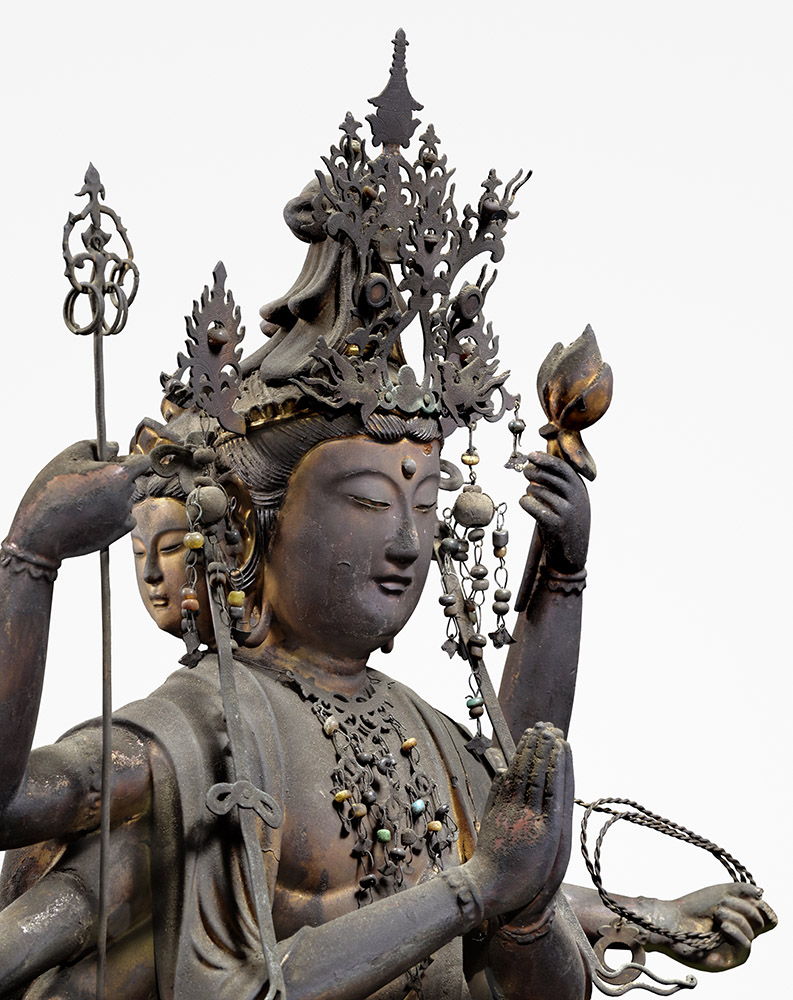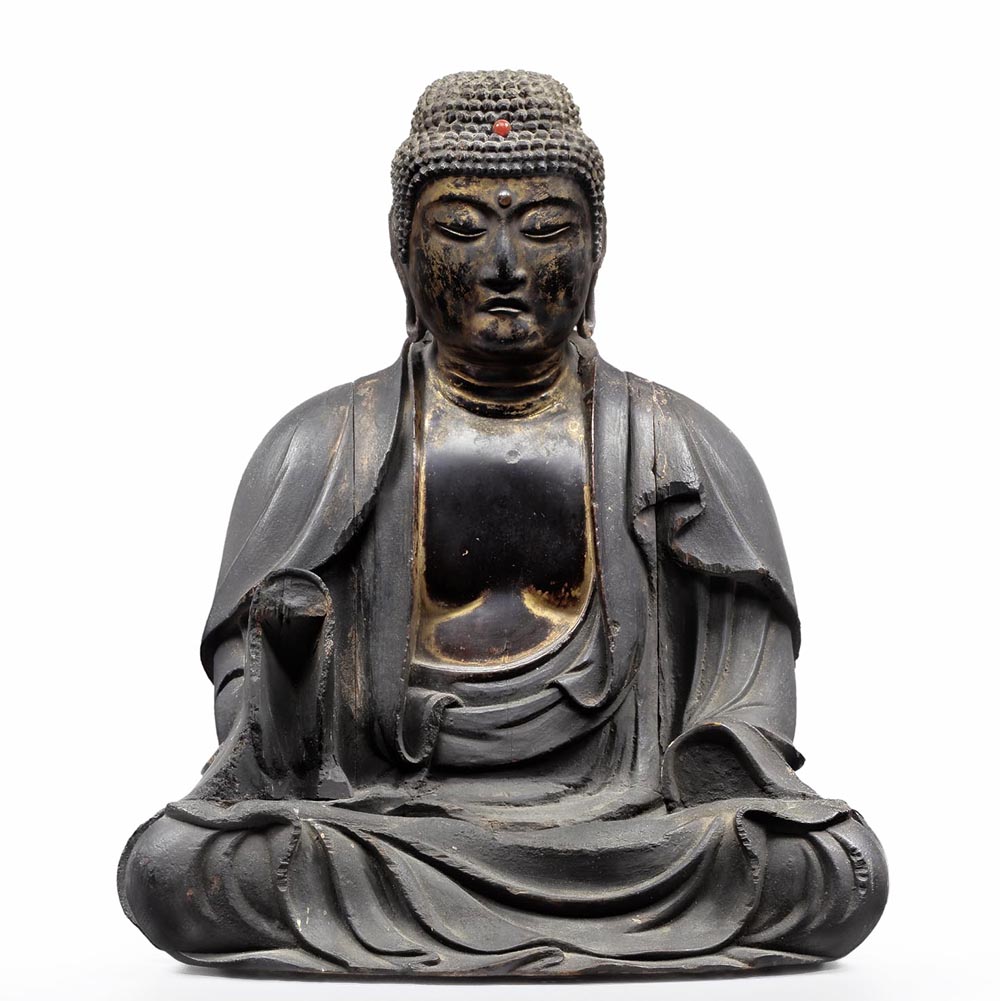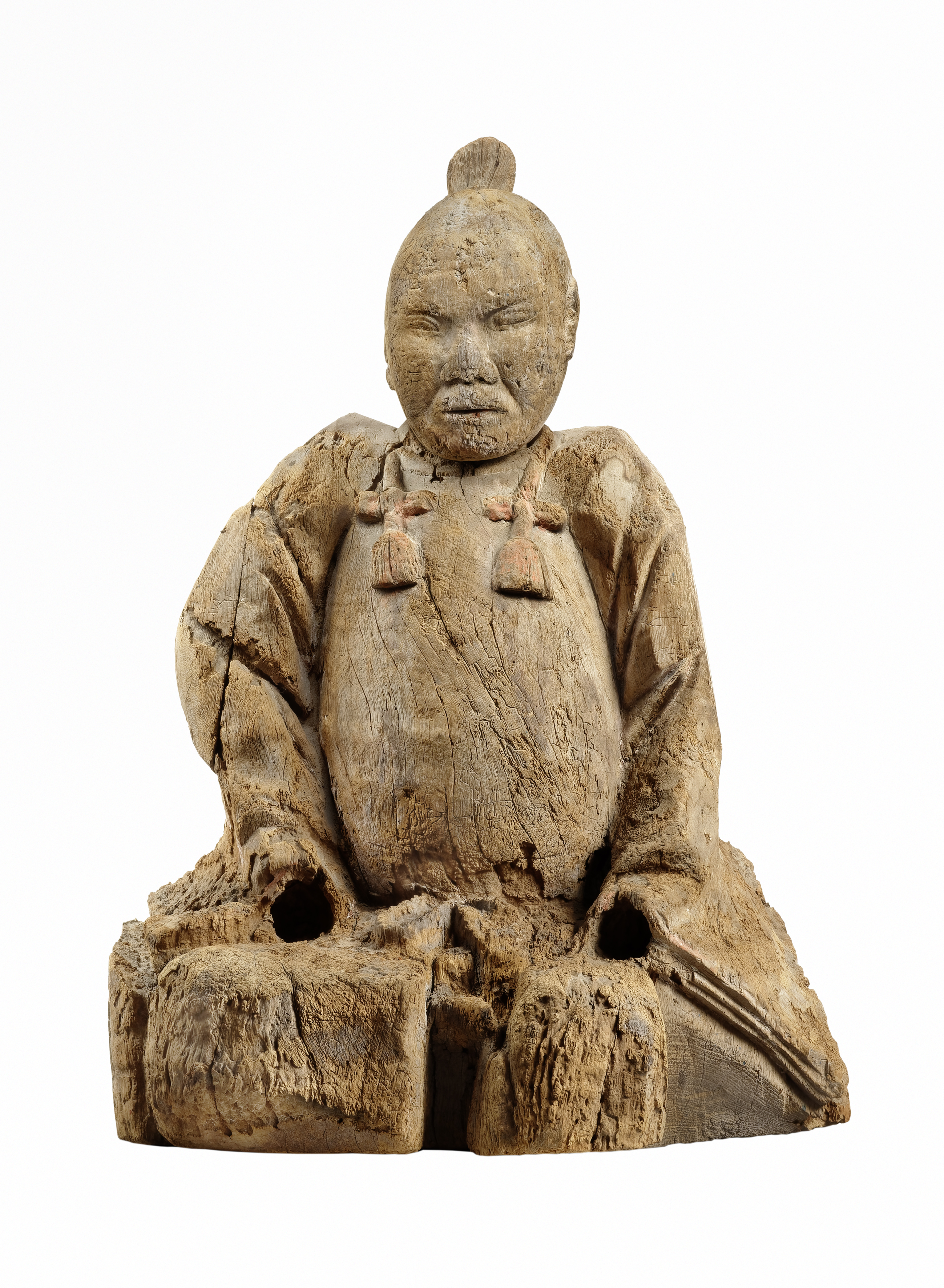Fukūkenjyaku-kannon
Statuary
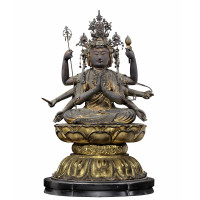
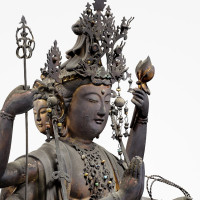
- Sold
-
Material
Lacquered wood, metal
-
Size
Ø. 25 cm (base) – 46 cm (high)
-
Period
Momoyama period 16th-17th century
-
Box
Awasebako – collector’s box
Description
Fukūkenjyaku-kannon, Amoghapāsa
Fukūkenjyaku-kannon (amoghapāsa in Sanskrit) is one of the bodhisattva in Buddhism. It is generally
regarded one of the Six Forms of Avalokitesvara, and said to save people.
Fukū means that the belief will never bring the vainness, and kenjyaku is a rope to catch birds and beasts. Its name interprets that Fukūkenjyaku-kannon save all the people and grant their wishes.
It is depicted with diverse images according to the saccred books of Buddhism, but mostly it has 8 arms with belongings as lotus flower, kenjyaku or monk staff.
This statue has three heads and eight arms. Because it is three-headed, it might be mistaken as
another of the Six Forms of Avalokitesvara, the Batō-kannon.
However, the three faces have all the quiet and gentle look and it is so different from that of the Batō-kannon which has angry countenance. And it is appropriate to judge as Fukūkenjyaku-kannon by the belongings. It is a quite rare statue as Fukūkenjyaku-kannon which has three-heads.
The gold lacquer has almost gone because of the age, but the condition is very good. The expressions and carving are very gentle and fine, and all the belongings are original.
